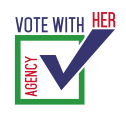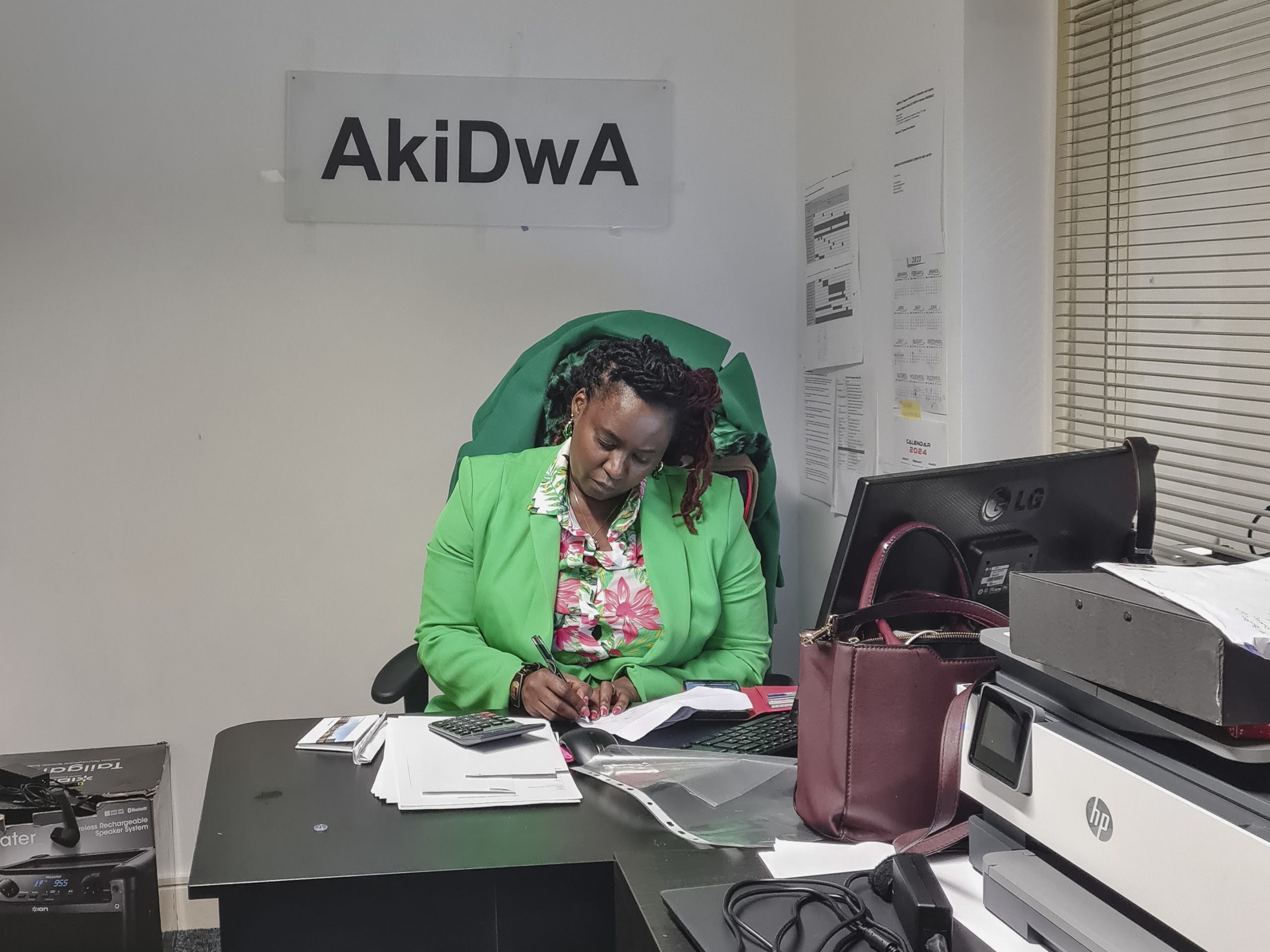
Shaping the Future: Civic and Political Participation of Women of African Descent in European Politics
Text and photos by Mary Patricia Acom
The European Union (EU) Parliamentary elections are held every five years, across all 27 European Union Member States, for people to vote for their representatives to the European Parliament. The next elections are scheduled for 6 to 9 June 2024 and will be held on different days, for example Netherlands will vote on Thursday while France will vote on Sunday. While Ireland’s election date is yet to be confirmed by local authorities, it is expected to be held on the same date as the country’s local elections which are anticipated to be on 7 June 2024.
One of the core roles of the EU parliament is to legislate and so the Parliament will make laws that affect all citizens and residents of the European Union, including migrants or emigrants. It is for this reason that every individual’s vote counts. EU Parliamentary representatives will make decisions that affect daily lives across the EU, such as employment, health, and environment, so it is important for all eligible voters to participate in these elections, which are also an opportunity for the people in Europe to determine the trajectory of European politics, and to collectively decide the future of the European Union.
In 2022, 5.1 million immigrants came to the EU from non-EU countries and 1.5 million people previously residing in one EU Member State migrated to another Member State. Considering that 0.4 million people with unknown country of previous residence also migrated to an EU Member State, this makes a total of 7.0 million arrivals because of international immigration in 2022. Comparatively, in 2021 there were an estimated 2.4 million immigrants to the EU from non-EU countries and 1.4 million people previously residing in one EU Member State migrated to another Member State. As of 1 January 2023, 27.3 million citizens of non- EU member countries were residing in an EU Member State, representing 6.1 % of the EU population. This indicates an increase of 3.5 million compared to the previous year. Additionally, 13.9 million persons living in one of the EU Member States on 1 January 2023 were citizens of another EU Member State.
23.7 million third country nationals live in the EU Member States, representing 5.3% of the EU population. This amounts to almost 24 million people whose voices and contributions must be recognized and considered in political, economic civil and social affairs. There is limited data on statistics of people of African descent living in Europe however in 2011, it was estimated at 7 millionpeople, forming an influential African diaspora. Ireland alone hosts 57,900 people of African descent.
Given the incidence of migrant populations and specifically people of African descent in Europe, it is crucial that their citizenship and political participation extends beyond conventional electoral rights like voting or contesting for electoral positions. It should encompass recognition and full enjoyment of civil, political and social rights that enable migrants, especially women and girls, to have a life free of violence and influence the society in which they live.
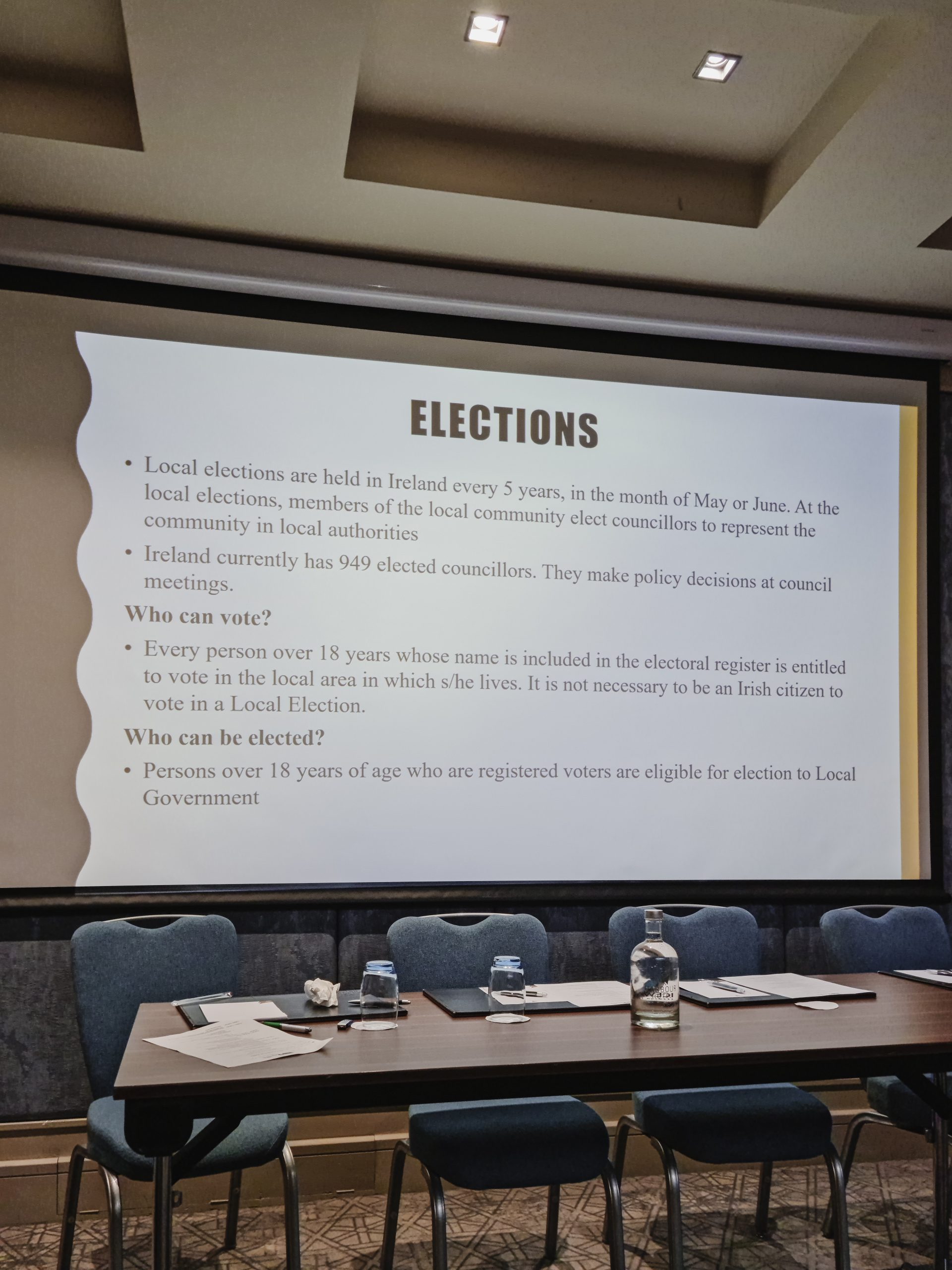
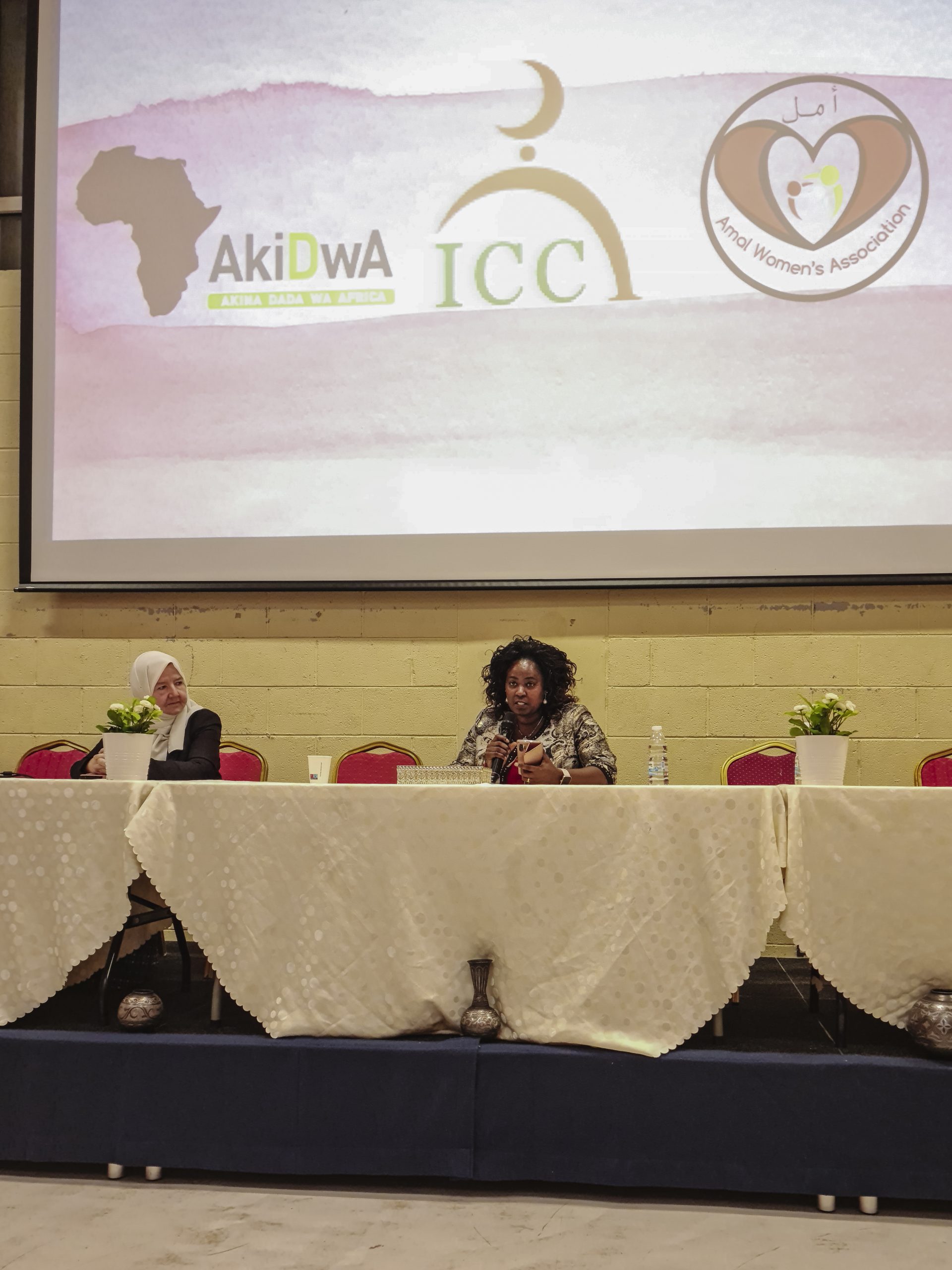
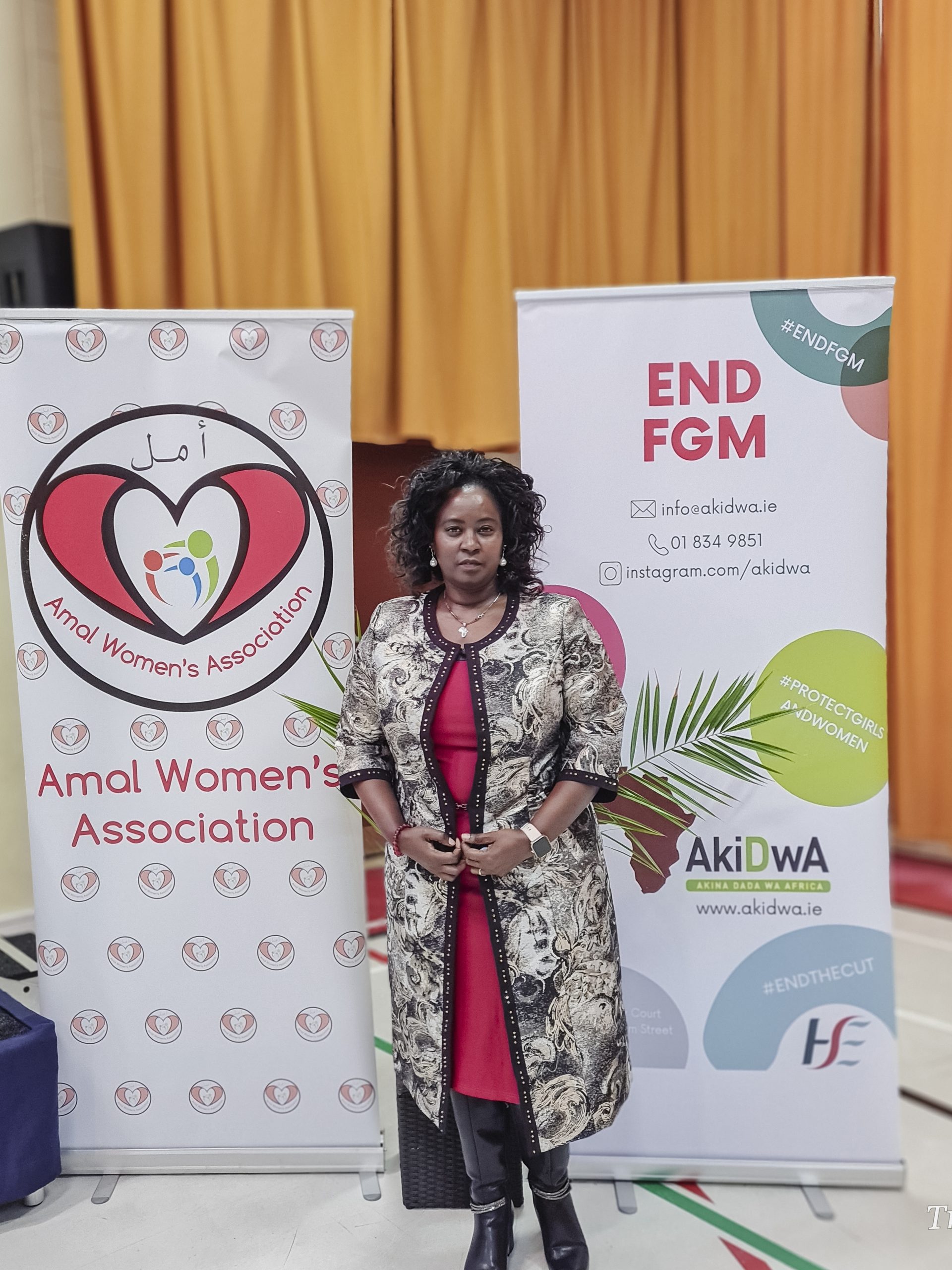
My project explores the civic and political participation of Women of African Descent in European and Ireland’s politics; Experiences, Challenges and Best practices. A case of Dr Salome Mbugua.
Dr Salome Mbugua is a researcher, gender equality activist and human right advocate. She is the CEO of AkiDwA, a migrant Women’s Network Organisation and Charity in Ireland and has over 20 years of experience working with under-represented groups, particularly women, children, and youth, in Europe, Africa and internationally. Her expertise is in policy, strategic planning and development, project development and implementation, monitoring and review.
Dr Salome Mbugua has been involved in the development of several policies and strategies in Ireland and at the EU level, engaging with various Irish government departments, agencies and units focusing on economic, social and political development. In 2019 she was appointed by the Tánaiste (deputy prime minister) to chair the working group on the development of Ireland’s 3rd National Action Plan on Women, Peace, and Security. She has engaged and presented at the council of Europe on discussions focusing on refugee women and the role of foreign policy in advancing gender equality. She serves on various advisory committees, expert groups and boards in Ireland and at a European level.
Dr Mbugua chairs the Equality, Diversity, and Inclusion project board of the Public Appointment Services in Ireland. She is Co-President of European Network of Migrant Women and sits on the EU Expert Group on economic migration with the European Commission. As a prominent public speakerand great motivator, she has delivered over 300 presentations on gender, development, equality, diversity, racism, migration, women on the move and the refugee crisis, gender-based violence, feminism, and inequality in Ireland, Europe, Africa and America.
Dr Mbugua also Co-Chairs the Steering Committee of the International Decade for People of African Descent in Ireland and leads its thematic committee on Civic and Political Participation and Media representation, where she represents the African community before the state and engages with the community directly, to promote their civic rights and political participation, among others. She is on record for being the very first migrant woman to run for the Seanad Eireann, which was an important milestone for migrant communities in Ireland, at a period where they had restricted voting rights and limited opportunity to participate in decision making at State level.
In an interview, Dr Salome remarked that Women of African Descent are resilient, something which she witnessed more in her over four-year term as the President of the European Network for Migrant Women. She has worked with and has witnessed Women of African Descent being strong activists for the People of African Descent in Europe, by establishing groups and organizations that look after the welfare of African communities, and offer support to families, mothers and children. She noted that Women of African Descent are keen and endeavor to get involved in affairs that affect their communities.
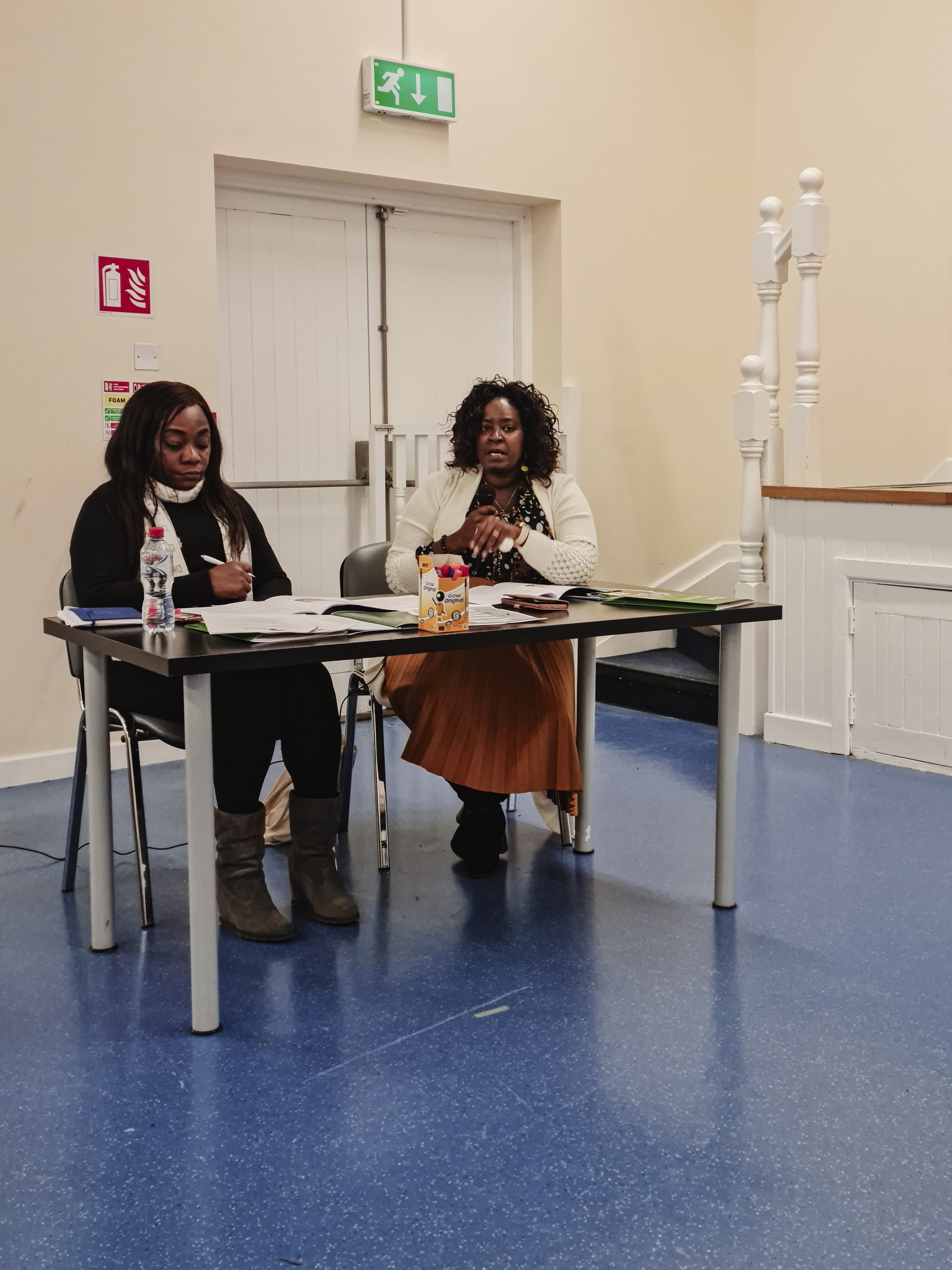
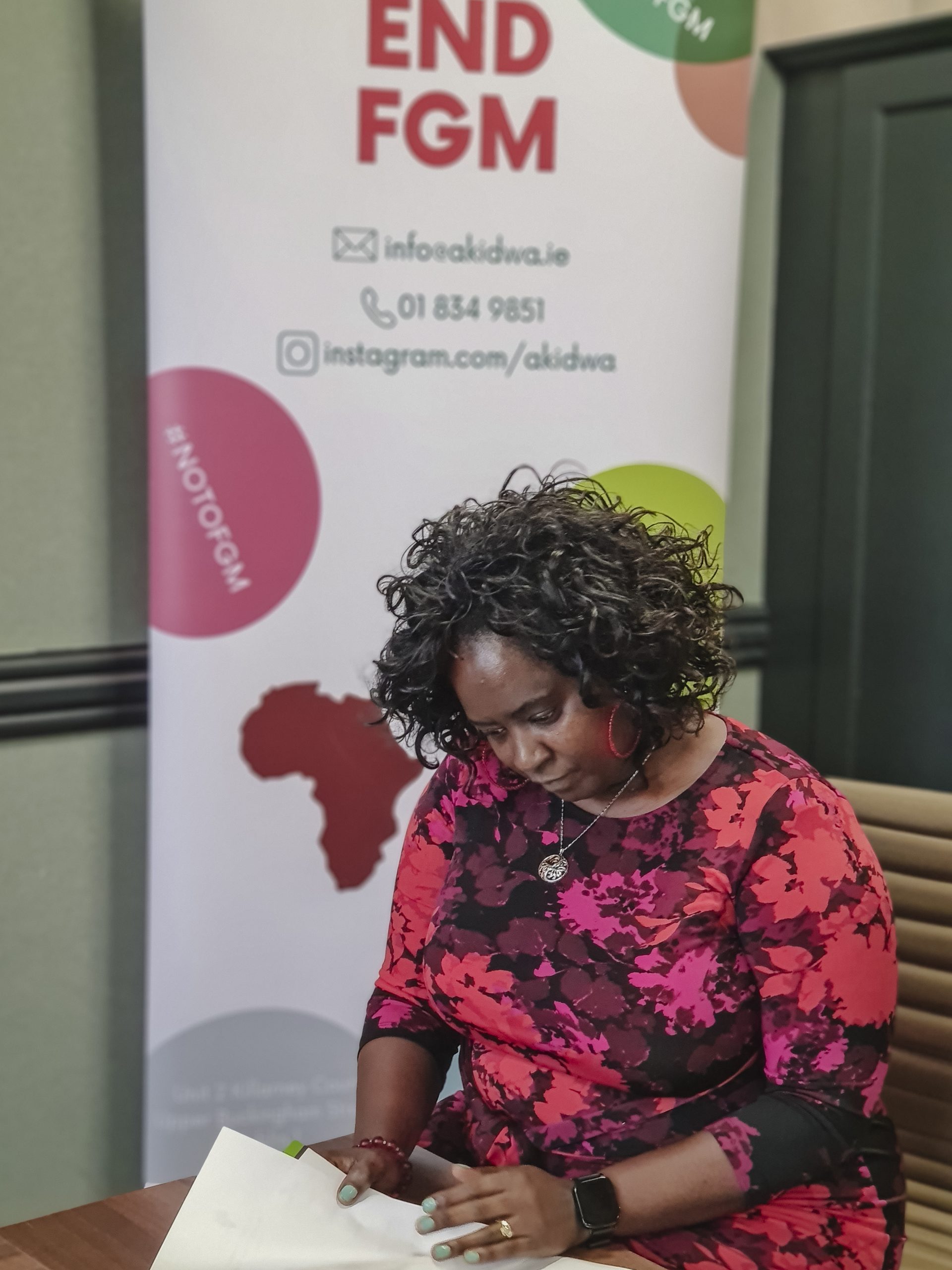
Dr Mbugua observed that in Ireland, this is demonstrated by the existence of Migrant led organizations (including but not limited to AkiDwA, Institute of African and Black Studies Ireland, Go Com) and she is pleased that five (5) African women are contesting for local elections in Galway and are working with various community groups.
Despite their resilience she exclaimed, Women of African Descent are highly affected by several barriers including racism and discrimination, financial constraints, and lack of support from political parties! She noted that lack of support from local groups and organizations profoundly affects African political aspirants’ civic engagements, and further articulated the fact that Women of African Descent involved in politics face cultural constraints and norms, especially when confronted with contentious issues like LGBTQ+ and abortion, among others.
For best practices, Dr Salome recommended affirmative action for Women of African Descent involved in politics in Ireland and in Europe as a whole. She implores the States to provide support to overcome barriers, in the form of a fund to support the women in building their political visions as this would alleviate the financial difficulties faced while running campaigns.
She further encourages women to get involved more in elective politics and to occupy spaces in which decisions that affect them and their communities, are made. She remarked:
“Go into it with confidence that you are able to deliver on your mandate. Let the world know that you understand issues that affect your community. Look at Equality and Justice from a broader perspective and be a good role model, mentoring other women to attain their vision.”

This project illustrates the resilience with which Migrant Women (Women of African Descent) seek to participate in decision making processes, to represent and have issues that affect their communities addressed at all levels. African women like Dr Salome take further initiatives to mentor and inspire other women to engage in civic and political spaces, as seen in some of this project photos, where she speaks to women about electoral processes, shares experiences and best practices for success.
Significant barriers to civic and political participation of women of African Descent, which ought to be addressed by the State are also highlighted.
Hence this is a call to the State to take affirmative action in favour of Women of African Descent engaging in politics, to provide a fund that will support them to overcome these barriers.
It is a call upon people, especially migrant women, women of African Descent to vote in the forthcoming local and European Parliamentary elections. To vote leaders who will work on your behalf to address issues like racism and discrimination, across all sectors like education, employment, health care systems and justice.
The local leaders and European Union Parliamentarians will make decisions that affect your daily lives, so Your Vote is Your Say!
